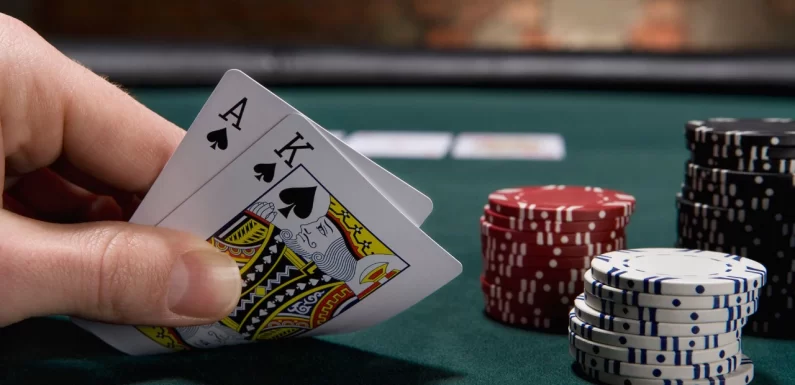
Poker is an engaging card game of chance and skill, which can be enjoyed for pennies or matchsticks or in casinos for thousands. Two or more people may compete, with rules varying according to local customs and preferences.
No player may place more bets than allowed under any given betting interval stage.
Game of chance
Poker is an ancient card game with centuries of history that combines luck, skill and strategy into an ever-popular card game that continues to gain new fans today. While there are various types of poker, each with their own rules and strategies – Dice poker has recently seen tremendous growth among players!
A typical poker game features a dealer, who is responsible for shuffling the deck and giving each player two cards from it. Although sometimes non-playing, this person must still follow certain customs to ensure fair play – such as giving each hand its own dealer chip that must then be passed onto another player after each round has concluded.
Each hand of poker involves a pot, composed of the antes and blinds as well as any bets placed during the hand. The best hand wins this pot; players may call, check or fold during betting rounds. Some variants require blind bets from those to the left of the button.
Skilled poker players tend to win consistently despite its reputation as a game of chance. Unfortunately, there is also some cheating going on in poker; one such way is using holdout devices or any device which secretly introduces cards from outside the game into one’s hand without detection by other players or by the casino staff. Holdout devices may be hidden under tables, chairs or simply be simple mechanical tools used by those seeking an unfair edge in games like these.
Game of skill
Poker is an intense combination of skill and luck; however, an effective player will still win more hands in the long run than an unprepared opponent due to being pitted against other players rather than against the house (unlike blackjack and baccarat which offer the casino an edge which cannot be overcome over time).
Skilled poker players can employ various strategies to increase their chances of victory, including bluffing. This involves raising bets with weak hands in order to fool other players into believing you possess stronger ones, while reading body language and betting patterns of opponents to implement this tactic successfully.
One way to hone your skills is by starting at lower limits. This will enable you to hone your strategy without risking too much money, and once you’ve mastered the fundamentals, move up in stakes once you have. Doing this allows you to compete against stronger players while learning from mistakes; developing your game further and increasing chances of becoming a professional poker player by continually practicing – you could even become a pro eventually! Just make sure not to neglect practicing.
Game of psychology
Poker is a game of psychology, and understanding this aspect can help you beat your opponents at the table. Many players become their own worst adversary at the table due to personal issues that cause them to lose – possessing a thorough knowledge of human psychology will allow you to sidestep these problems and improve your poker game!
Psychological applications in poker often revolve around reading your opponent’s tells. This involves carefully watching their body language to ascertain whether they have a strong hand or are bluffing; tells can include facial expressions, voice inflection and posture cues which good poker players learn to capitalize upon in their games.
Psychological techniques in poker can also be utilized through table talk. Although most players shy away from speaking during a hand, certain ones can still convey information through their speech patterns and points of inflection – for instance a player with bad posture may suddenly stand up straight when holding strong cards.
Caro’s Book of Poker Tells is an invaluable source of knowledge on this subject, providing insight into both their history and how to detect tells in others, as well as covering how false tells can help deceive opponents.
Game of bluffing
Bluffing is a fundamental element of poker strategy. It allows you to win chips even without an impressive hand, while also increasing the risks you take and mistrust of opponents. Thus, reading opponents carefully is key and weighing both risk and reward before initiating each bluff.
Apart from reading your opponent’s body language and betting patterns, you should also pay close attention to their preflop tendencies. You can do this by analyzing their VPIP and PFR stats with a HUD; using this data will allow you to calculate their starting hand range by position; providing insight into whether they have strong hands likely calling your bluffs.
Another consideration when playing multiple hands simultaneously is the number of players involved in each hand. With multiple opponents competing against you, it may become harder to extract value from opponents through bluffs; early positions may even make this worse by making opponents call with strong hands easily. A great way to combat this problem is by maintaining an appropriate hand range which includes more value hands than bluffs.

